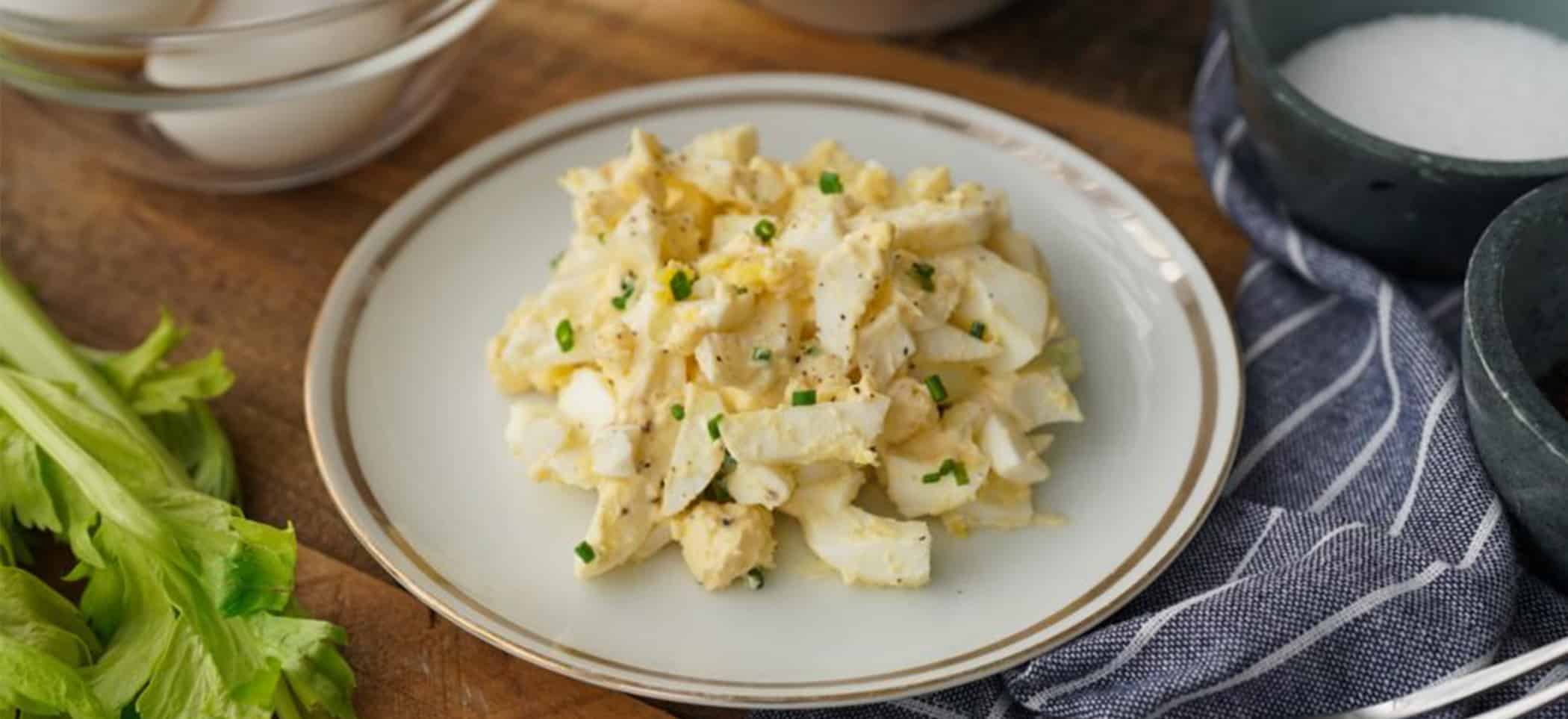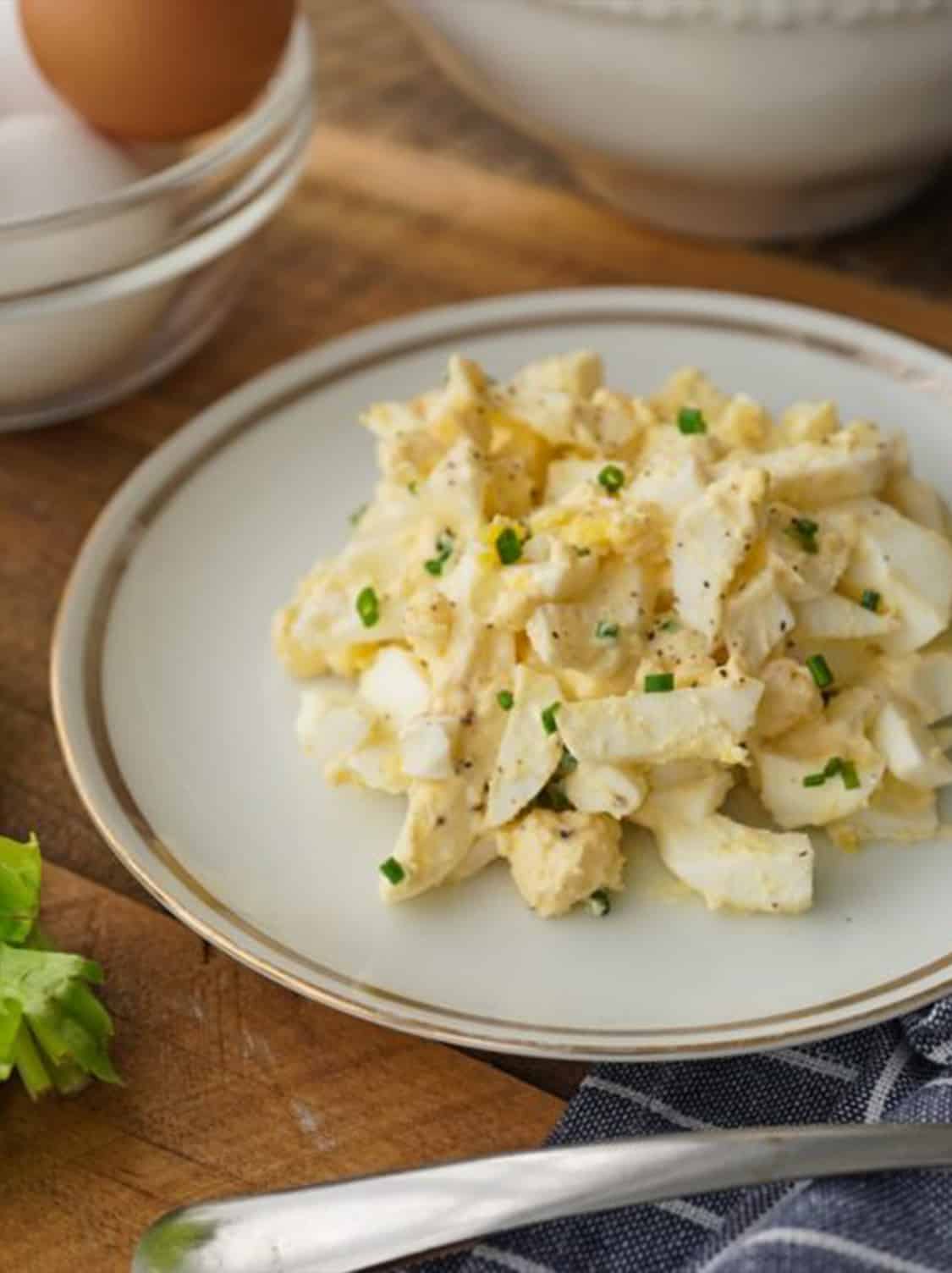

Directions
RESERVE and refrigerate 4 center egg slices for garnish, if desired. CHOP remaining eggs.
MIX mayonnaise, lemon juice, onion, salt and pepper in medium bowl. ADD chopped eggs and celery; MIX well. REFRIGERATE, covered, to blend flavors.
SERVE on lettuce leaves, garnished with reserved egg slices.
Easy 12-Minute Method for Hard-Boiled Eggs: PLACE eggs in a saucepan large enough to hold them in a single layer. ADD cold water to cover the eggs by 1 inch. HEAT over high heat just to boiling. REMOVE from the burner. COVER pan. Let eggs stand in hot water for about 12 minutes for large eggs (9 minutes for medium eggs; 15 minutes for extra large eggs). DRAIN. SHOCK the eggs in a bowl of ice water to cool them immediately. Hard-boiled eggs are easiest to peel right after cooling.
Ingredients
- 6 large hard-boiled EGGS, sliced
- 1/4 cup mayonnaise
- 2 tsp. fresh lemon juice
- 1 Tbsp. minced onion
- 1/2 cup finely chopped celery
- Lettuce leaves (for serving)
Tips
This recipe for egg salad can be layered with crunchy lettuce on whole wheat toast for a simple sandwich or stuffed into cherry tomatoes for an impressive appetizer.
Very fresh eggs can be difficult to peel. To ensure easily peeled eggs, buy and refrigerate them a week to 10 days in advance of cooking. This brief “breather” allows the eggs time to take in air, which helps separate the membranes from the shell.
Hard-boiled eggs are easiest to peel right after cooling. Cooling causes the egg to contract slightly in the shell.
To peel a hard-boiled egg: Gently tap egg on countertop until shell is finely crackled all over. Roll egg between hands to loosen shell. Start peeling at large end, holding egg under cold running water to help ease the shell off.
Hard-boiled egg storage time: In the shell, hard-boiled eggs can be refrigerated safely up to one week. Refrigerate in their original carton to prevent odor absorption. Once peeled, eggs should be eaten that day.
This recipe is an excellent source of choline and a good source of folate, protein and vitamin A.
Per serving: 1/4 of recipe
- Calories 205
- Total fat 18 g
- Saturated fat 4 g
- Polyunsaturated fat 8 g
- Monounsaturated fat 5 g
- Cholesterol 285 mg
- Sodium 350 mg
- Carbohydrates 1 g
- Fiber 0 g
- Sugar 1 g
- Protein 10 g
- Vitamin A 125 mcg
- Vitamin D 2 mcg
- Folate 41 mcg
- Choline 226 mg
- Calcium 50 mg
- Iron 1 mg
- Potassium 147 mg
To ensure food safety, eggs should be cooked until both the yolk and the white are firm. Consuming raw or undercooked eggs may increase your risk of foodborne illness, especially for those with certain medical conditions. For recipes that call for eggs that are raw or undercooked when the dish is served, use either pasteurized shell eggs that have been treated to destroy Salmonella, or use pasteurized egg products.
